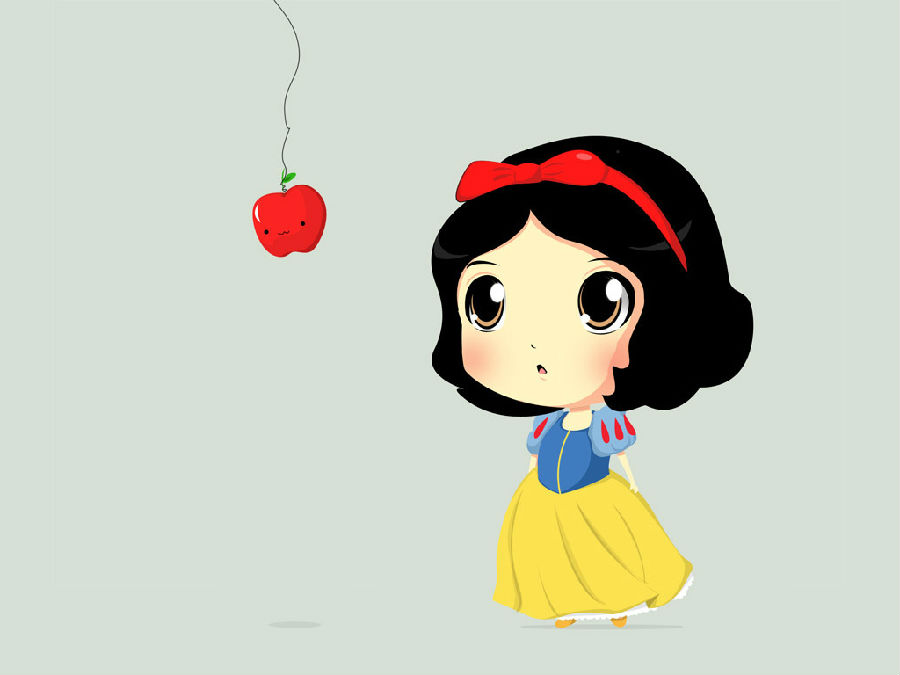Must Every Little Girl Be the Princess?
每个小姑娘都得是公主吗?
Even though women continue to advance in American society, many little girls still get stuck in a world of fairytale princesses and frilly pink dresses. That does not sit well with journalist Peggy Orenstein, who mused about her young daughter's obsession with Disney princesses and predilection for the color pink in a New York Times Magazine essay.
在美国社会,虽然妇女们继续取得进步,可是小姑娘们仍然很容易迷恋于童话里的公主和粉红百褶裙。新闻记者佩姬·欧伦史坦不喜欢这种现状,她在纽约时报杂志一篇文章里探讨了她小女儿对迪斯尼童话中公主的迷恋和对粉红色的偏爱。
She reflects on the overwhelming emphasis on this stereotyped ideal for girls in a new book, "Cinderella Ate My daughter." Orenstein is at war with what she describes as our hyper-feminized girlie-girl consumer culture.
她在一本名为《灰姑娘吃掉了我女儿》的新书中,探讨人们为什么那么强调女孩儿这种程序化了的幻想。欧伦史坦在跟她所说的过度女性化的娇娇女女孩消费文化开战。
"What is marketed to girls is this idea of pink and pretty. It fuses the idea of appearance with innocence,she and then presents the interest in appearance as being evidence of their innocence," she says.
她说:“向女孩推销的是这个粉红和可爱的观念,一种天真无邪的样子。于是女孩儿们就去追求一种证明她们天真的外貌。”
"But what's happening is that girls are emphasizing the way they look more and more. So, we're talking about makeup and provocative dresses and all of that kind of things."
“结果是,女孩们越来越看重自己的相貌。所以,我们就在谈论化妆和具有挑逗性的服饰,诸如此类的东西。”

"The American Psychological Association put out a report a couple of years ago that said that an early over-emphasis on appearance and play-sexiness can create a vulnerability in girls to the sorts of issues that we as parents worry about such as negative body image, eating disorders, depression and poor sexual choices," she says.
她说:“美国心理学会两三年前公布过一份报告说,早期过分强调相貌和性感容易使女孩在我们家长担心的那种事情上受到了伤害,比如对身体的负面看法、饮食絮乱、忧郁和性行为方面糟糕的选择。”
"The American Academy of Pediatrics just put out a warning to tis member physicians to be more on guard for signs of eating disorders in children under 12 because they've been on the rise and under diagnosed."
“美国儿科学会刚刚对会员医生发出一个警告,要他们注意12岁以下孩子饮食絮乱的现象,因为这种情况有上升趋势,但却很少被诊断出来。”
When girls define themselves by how they appear to others rather than by how they feel internally, Orenstein says, it sets them up for disappointment.
欧伦史坦指出,当女孩们以她们在别人眼中相貌如何而不是以他们内心如何感受来定义自己的时候,她们会因为失望而不安。
At the same time, Orenstein also says parents have the power to raise healthy, self-confident daughters. They can provide positive alternatives that counter the influence of the media to buy certain products and look a certain way.
同时,欧伦史坦也认为,家长们是有能力培养出健康、自信的女儿的。他们能够提供正面的东西,来反制鼓动人们买某些产品和装扮成某种样子的媒体影响。
"It's not good enough just to say ‘no’ to the things coming at you. You have to find other things that are out there that you can say ‘yes’to, that are fun and joyfully connect your daughter to being a girl, that can broaden and enhance and create options for your daughter and how she defines herself as a girl."
她说:“向冲着你来的东西说‘不’是不够的。你还得找到你可以说‘是’的东西来,即那些有趣而且能把你的女儿愉快地跟做女孩联系起来的东西,让她有更多更好的选择。”













